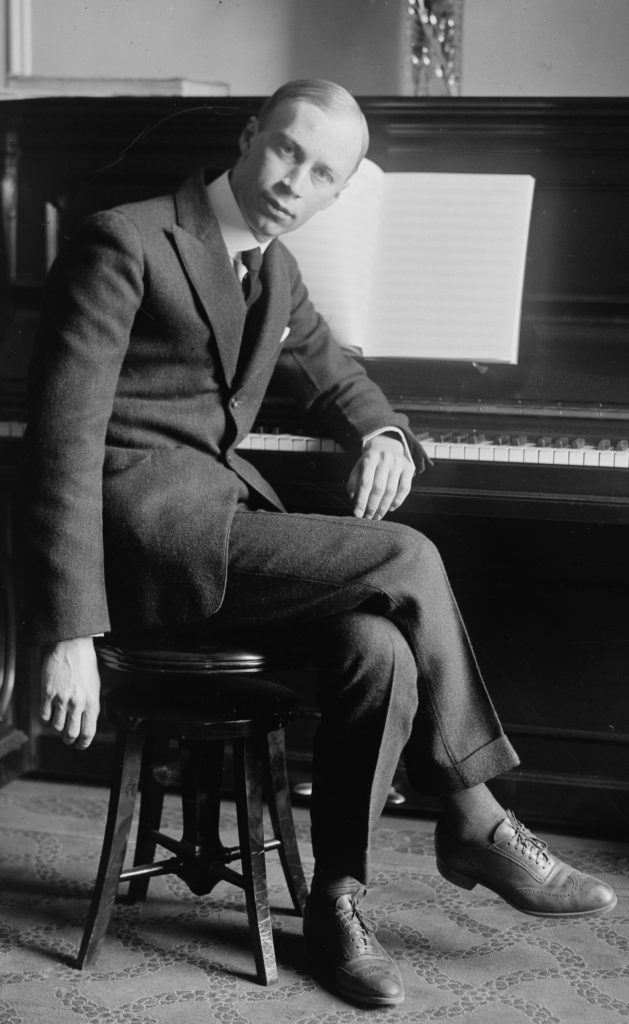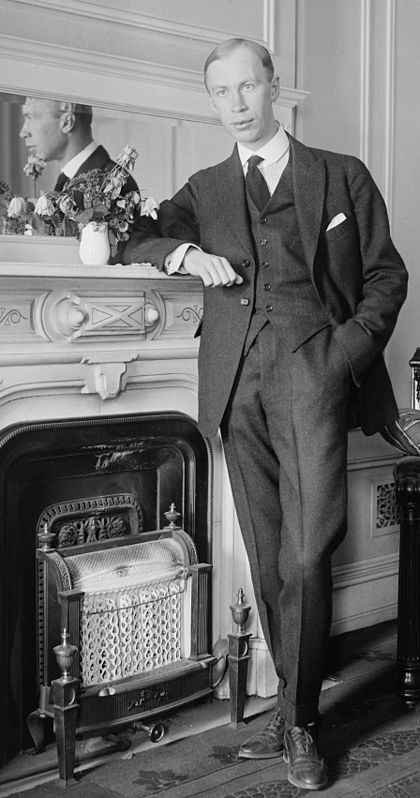
Yesterday’s Music History Monday post focused on Sergei Prokofiev (1891-1953), his ballet Romeo and Juliet, and his permanent return to the Soviet Union in 1936 at precisely the time Joseph Stalin’s Great Terror was shifting into full gear. Today’s Dr. Bob Prescribes explores Prokofiev’s explosive and in all ways awesome Piano Sonata No. 7 (completed in 1942), one of the great masterworks of his “Soviet years.”
BUT EVEN MORE THAN THAT! I absolutely believe, without qualification, hedging, prevarication, equivocation or any other description of lily-livered middle-of-the-roading (where dwells nothing but dead skunks and yellow lines) that the prescribed recording is not just the best available of Prokofiev’s Piano Sonata No. 7 but the best possible recording of Prokofiev’s sonata on what is, in my humble but not ill-informed opinion, the greatest single solo piano album ever recorded.
Deep breaths.
I find it hard to believe that only now, in my 128th (consecutive) Dr. Bob Prescribes post, am I getting around to this album. Better late than never.
Sergei Prokofiev was born on April 11, 1891 in the village of Sontsovka, in Ukraine. His father managed a large estate, and it was on that estate that Prokofiev grew up an isolated, lonely, spoiled only child. A piano and composition prodigy, he entered the St. Petersburg Conservatory in 1904 at the age of 13 and graduated ten years later, first in his class. His developing career as both a pianist and composer was cut short by the events of 1917 and 1918: Russia’s catastrophic performance in World War One; the abdication of Tsar Nicholas II; the Russian Revolution; and the beginning of the Russian Civil War.

By early 1918, the young, brash, and ambitious Prokofiev – 27-years-old – decided that the time was ripe for a brief trip abroad, just long enough to let things settle down in Russia. He later wrote:
“On May 7, 1918, I started my journey, which was to take me abroad for only a few months . . . or so I thought.”
In reality, it would be 18 years before Prokofiev permanently returned to his native Russia.
Writes Prokofiev biographer Harlow Robinson:
“Like so many other Russians of his upbringing and education, Prokofiev failed to grasp the scope of the social and cultural transformation that was to come. Prokofiev’s time abroad turned into years. By the early 1920s Russia had lost (to name only [a few]), Nabokov and Bunin in literature; Kandinsky and Chagall in painting; Stravinsky, Rachmaninoff, and Prokofiev in music. Many of these artists believed – like Prokofiev – that they were leaving Russia only temporarily. Some were confident that the Bolshevik hoodlums would soon be thrown out of power; others were simply waiting for the situation to settle down.”
As discussed in yesterday’s Music History Monday post, Prokofiev was a difficult person to like but a very easy one to dislike. We can think of no other composer in the great history of Western music who had so many fights, conducted as many feuds, initiated as many lawsuits, and made so many enemies as did Sergei Prokofiev.
Prokofiev’s personality goes a long way to explaining why he had problems in the United States and France, where he lived between 1918 and 1936. Even more, it is Prokofiev’s narcissism that explains the single biggest mistake he ever made, and that was returning to Russia/the Soviet Union to stay in 1936.
Back in the U.S.S.R
On January 18, 1927, Prokofiev set foot in what was now the Soviet Union for the first time in nearly nine years. He had been invited to concertize, and his tour was a triumph. Prokofiev returned again in 1929, 1932, and twice in both 1933 and 1934.
It was the success of these tours that convinced Prokofiev to return permanently in 1936 and become a Soviet citizen.
At first, everything was great! As we observed in yesterday’s Music History Monday, Prokofiev’s return was a public relations coup for Stalin’s regime during those horrific years of the Great Terror: the “worker’s paradise” had reclaimed a prodigal son. Prokofiev was honored and celebrated even as millions of his fellow Soviet citizens were being arrested, tortured, sent to the Gulag or executed. For the first couple of years, Prokofiev was even permitted to travel abroad.
Then, in 1938, the clamps came down. Prokofiev was forbidden to travel out of the country. Performances of his music deemed to be of “questionable ideological content” were cancelled; and Prokofiev was forced, increasingly, to dance to the regime’s tune. By 1939, a chastened Prokofiev had grudgingly come to realize that he was going to have to be “two composers in one.” With one hand, he would write explicitly “Soviet” works: “public” works that satisfied the ideologues, while, with the other, he would compose the music that he wanted to compose; “private works” that would be tolerated in light of the more patriotic stuff.
Among those “private works” were Prokofiev’s piano sonatas.…
Continue reading, and see the prescribed recording, only on Patreon!
Become a Patron!